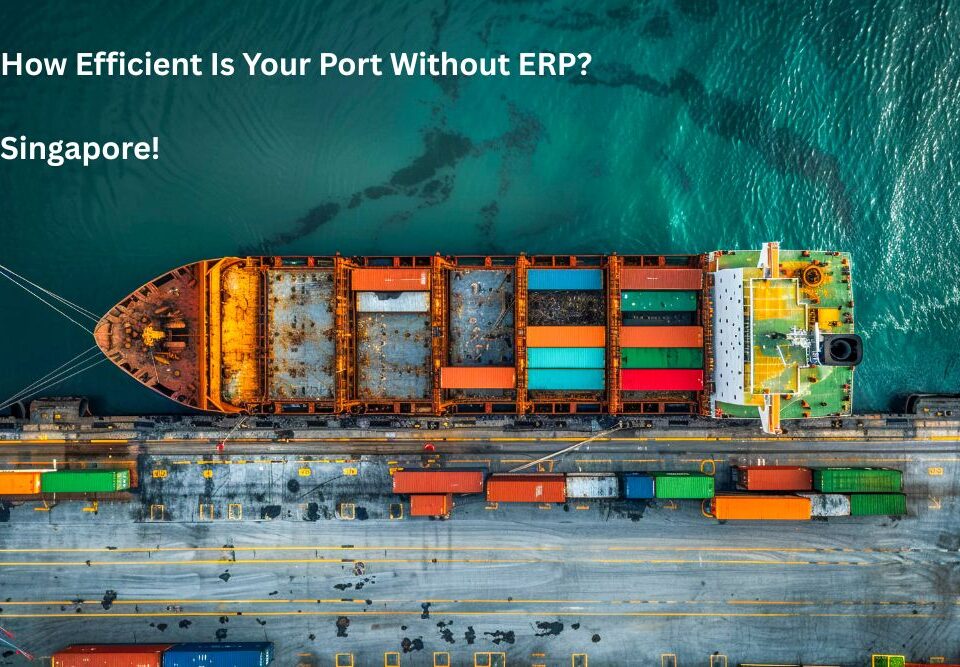
How U.S. E-commerce Businesses Leverage ERP for Faster Cross-Border Shipping in USA
April 15, 2025
How Singaporean Manufacturing Firms Use ERP to Optimize Smart Factory Initiatives
April 22, 2025Understanding the Impact of ERP on Freight & Tariff Management in the USA
The logistics landscape in the United States is complex and ever evolving, shaped by regulatory frameworks, fuel price volatility, and intricate tariff systems. For importers, exporters, and logistics service providers, managing these elements efficiently is key to staying competitive and profitable. Enterprise Resource Planning (ERP) systems are proving to be transformative tools in streamlining freight and tariff management. This article explores the critical role ERP plays in revolutionizing these operations across the U.S.A.The Challenge: Freight & Tariff Management in the U.S.A.
Freight and tariff management in the U.S. involves a few challenges:- Complex Tariff Structures: Companies must navigate federal and state duties, taxes, and classification codes.
- Fluctuating Fuel Prices: Constant changes in fuel prices directly impact transportation costs.
- Regulatory Compliance: Staying compliant with transportation, safety, and customs regulations is crucial.
- Real-Time Shipment Visibility: Customers demand accurate, up-to-the-minute information.
- Route and Carrier Optimization: Businesses must choose cost-effective and reliable transportation methods.
- Extensive Documentation: The paperwork required for customs and freight handling is often overwhelming.
ERP as a Solution: Streamlining Freight & Tariff Operations
ERP software centralizes and automates business processes, including freight and tariff management. Here are the key advantages:- Automated Tariff Calculations & Compliance: ERP systems calculate tariffs and duties based on product origin, classification, and destination. Automated updates ensure compliance with changing U.S. customs and trade laws.
- Real-Time Freight Cost Management: ERP systems integrate with Transportation Management Systems (TMS) to provide real-time cost calculations. This enables optimized route planning and economical carrier selection.
- Enhanced Visibility: Real-time tracking and transparency across the supply chain improve service reliability, especially for 3PL providers who depend on timely delivery data.
- Route Planning & Carrier Selection: ERP integrates with routing tools to find efficient transportation options and compare carrier rates to minimize delays and reduce costs.
- Simplified Documentation: Automated generation and storage of documentation—including customs forms and invoices—improve accuracy and reduce manual errors.
- Improved Collaboration: ERP ensures seamless communication between logistics, finance, and sales teams by providing a unified platform for data sharing and coordination.
Selecting the Right ERP System for Shipping Industry
To harness the full potential of ERP in freight and tariff management, businesses should evaluate the following:- Industry-Specific Features: Choose ERP software designed for logistics, with built-in freight and tariff modules.
- Scalability: Ensure the system can grow with your business and adapt to changing operational needs.
- Integration Capabilities: Look for compatibility with TMS, WMS, and other core systems.
- User Experience & Support: Prioritize ease of use, training resources, and vendor reputation for responsive customer support.
Future Trends: AI, ML & Blockchain in ERP
Emerging technologies are poised to reshape ERP capabilities:- Predictive Analytics: AI/ML-powered tools will forecast shipping costs, delays, and suggest better routes based on historical data.
- Automated Document Handling: AI will automate the capture and verification of data from freight and customs documents, reducing manual workloads.
- Blockchain for Transparency: Immutable blockchain records can ensure data integrity and build trust in the supply chain.
How Coserve help you for ERP integration for logistic & shipping industry USA
As an Infor partner, Coserve Solutions utilizes its expertise in Infor technology for seamless integration of Infor ERP systems for Logistic industry, supply chain management & shipping industry. Services provided include custom integration development, which allows for continual data flow and process synchronization between the ERP and other enterprise applications. This integrated environment increases efficiencies and provides a 360 view of the overall business operations.This article explores the critical role ERP plays in revolutionizing these operations across the U.S.A.


